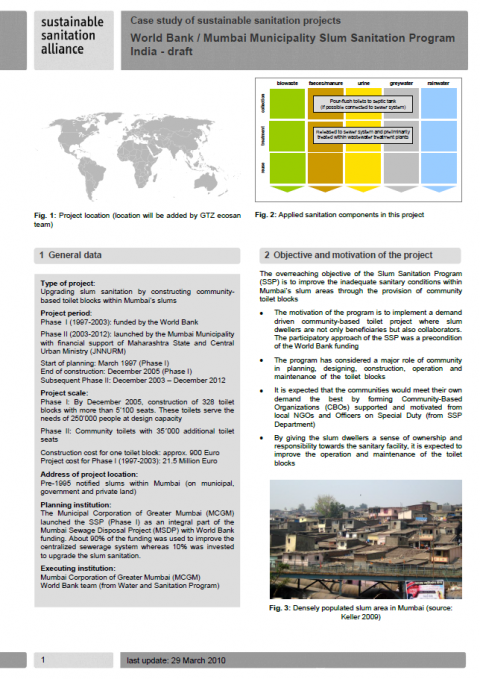World Bank / Mumbai Municipality Slum Sanitation Program India (draft) Case study of sustainable sanitation projects Jagtap, A. (2010)
Bibliographic information
Jagtap, A. (2010). World Bank / Mumbai Municipality Slum Sanitation Program India (draft) Case study of sustainable sanitation projects Sustainable Sanitation Alliance (SuSanA)
Filter / Tags
Urban (entire city)Urban informal settlements (slums)Case studies in SuSanA templateEnglish
Downloads
World Bank / Mumbai Municipality Slum Sanitation Program India - Draft
Type: application/pdf
Size: 0.66 MB

